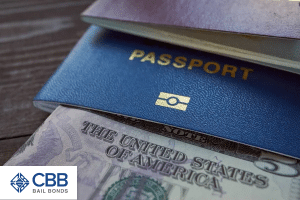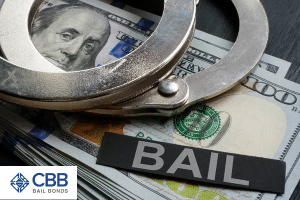
When you or a loved one lands in jail, the first thing on your mind is getting out as soon as possible. Bail bonds are the most common way to achieve this, but knowing which is suitable for your situation can take time with so any available types. Each type of bail bond has its own set of rules, benefits, and drawbacks. Knowing the differences can help you make an informed decision and speed up the release process.
At CBB Bail Bonds, we can help you choose the proper bail bond to meet your needs. Learn more below, and contact us to speak to our team.
Understanding Bail Bonds: An Overview
Bail bonds are agreements between a defendant and a bail bond company that allow the defendant to be released from jail while awaiting trial. In exchange for posting bail on behalf of the defendant, the bail bonds company charges a fee, typically a percentage of the bail amount. This system ensures defendants can continue their daily lives, work, and prepare their defense without jailing.
The bail bonds system plays a critical role in the justice system by balancing the need to ensure that defendants appear for their court dates against the principle that people are innocent until proven guilty. Many would remain in jail without bail bonds simply because they cannot afford the bail amount, regardless of their innocence or guilt. Bail bonds companies step in to provide financial assistance, making the process more accessible to everyone.
Surety Bonds: A Common Solution for Many

Surety bonds are the most widely used type of bail bond. They involve the defendant, the bail bondsman, and the surety company that backs the bond. When you opt for a surety bond, you pay a bail bondsman a fee, and in turn, they post the full bail amount to the court. This type of bond is popular because it allows individuals to post bail without coming up with the entire bail amount themselves.
How Surety Bonds Work
The defendant or a representative must contact a bail bondsman to obtain a surety bond. The bail bondsman will then evaluate the risk involved and charge a non-refundable fee, usually 10% of the bail amount. Upon agreement, the bail bondsman posts the full bail amount to the court, securing the defendant's release. This process usually happens quickly, allowing for the defendant's prompt release.
Surety bonds require the defendant to agree to certain conditions, including appearing at all court dates. If the defendant fails to appear, the bail bondsman, backed by the surety company, is responsible for the full bail amount. The bondsman may then seek reimbursement from the defendant or use collateral provided during the bond agreement.
The Role of a Bail Bondsman in Surety Bonds
Bail bondsmen are the critical link between defendants and the financial resources needed for release. They assess the risk, provide the bail money to the court, and ensure that the defendant understands their obligations. Bail bondsmen also have the authority to locate and return defendants to court if they fail to meet their court obligations, using various means to ensure compliance.
The relationship between a defendant and a bail bondsman is based on trust and legal agreements. Bail bondsmen offer guidance and support throughout the process, ensuring defendants and their families understand their responsibilities and the consequences of failing to comply with court orders.
Pros and Cons of Choosing Surety Bonds
Pros:
- Immediate Release: Surety bonds can speed up the release process, allowing the defendant to return home quickly.
- Financially Accessible: Only a fraction of the bail amount is required as a fee, making it more affordable for many.
- Support and Guidance: Bail bond agents provide valuable advice and support, helping navigate the legal system.
- Flexible Collateral Options: Property, cars, or other assets can sometimes be used as collateral, offering flexibility.
- Wide Availability: Surety bonds are available in most jurisdictions, making them a widely accessible option.
Cons:
- Non-Refundable Fees: The fee paid to the bail bondsman is non-refundable, even if the case is dismissed.
- Collateral Risk: If the defendant fails to meet their court obligations, any collateral put up may be at risk.
- Potential Additional Costs: If the defendant does not appear in court, you may be responsible for additional costs to locate and return them to custody.
Cash Bonds: When Cash Is King
Cash bonds require the full bail amount to be paid directly to the court. This option is straightforward but often impractical for those who need help to afford the full bail amount. When someone pays cash bail, the court holds the money until the case concludes. If the defendant meets all court dates, the bail is returned minus any court fees or fines.
Choosing to pay cash bail can be a significant financial burden, tying up funds that could be used for defense or other expenses. However, for those who can afford it, cash bonds offer a way to avoid fees from bail bonds companies and ensure that the defendant has a strong incentive to attend all court dates.
Property Bonds: Leveraging Assets for Freedom

Property bonds allow individuals to use real estate as collateral to secure release. This option is handy when the bail amount is high, and the defendant or their family owns property that can cover the value.
What Qualifies as Property for a Property Bond?
To qualify as collateral for a property bond, the property must have equity equal to or greater than the bail amount. The court requires proof of ownership, a current property valuation, and other documents establishing the property's worth. This process can be more time-consuming than other bail options, requiring a thorough evaluation of the property's value.
Property bonds involve a lien being placed on the property, which means that if the defendant fails to fulfill their court obligations, the court can force the sale of the property to cover the bail amount. This adds a layer of risk for those considering using their property as collateral.
The Process of Securing a Property Bond
Securing a property bond starts with gathering all necessary documents and presenting them to the court or bail bondsman. The court will then assess the property's value and determine if it meets the requirements. This process can take longer than obtaining a surety bond, as it requires detailed documentation and verification of the property's value.
Once approved, the property bond promises that the defendant will appear for all court dates. If the defendant fails, the court can seize the property. Despite this risk, property bonds are a vital option for those without cash but with significant equity in their assets.
Risks and Benefits of Property Bonds
Pros:
- No Cash Outlay: Allows defendants to secure release without needing immediate cash.
- Utilizes Existing Assets: Leverages the property's value that might not be otherwise used.
- Potentially Refundable: Unlike surety bond fees, the collateral is not forfeited unless the defendant fails to appear.
Cons:
- Risk to Property: If the defendant fails to appear, you could lose your property.
- Time-Consuming: The process requires more time due to the need for property evaluation and documentation.
- Complex: Involves more complex legal procedures compared to other bail options.
Federal Bonds: For Federal Offenses
Federal bail bonds are required for defendants charged with federal crimes. These bonds are more complex and often higher than those for state crimes. Federal bonds ensure that a defendant will appear for all court dates related to federal charges. Obtaining a federal bail bond involves more stringent conditions, reflecting the seriousness of federal offenses.
Federal bail bonds require a thorough understanding of the federal court system and its requirements. Defendants facing federal charges should seek the assistance of a bail bondsman experienced in handling federal cases to navigate the complexities of federal bail.
Immigration Bail Bonds: Navigating Non-Citizen Bail Issues

Immigration bonds are specific to non-citizens detained by Immigration and Customs Enforcement (ICE). Like other bail bonds, immigration bonds allow detainees to be released while awaiting court proceedings. However, these bonds also ensure that the detainee will comply with all immigration court rulings, including if the decision is to leave the country.
Obtaining an immigration bond involves a different process than regular bail bonds, with specific requirements and conditions set by immigration courts. It's crucial for detainees and their families to work with bail bond professionals experienced in immigration issues to ensure a smooth process.
Personal Recognizance Bonds: No Money Down
Personal recognizance bonds release defendants without paying bail. In exchange, they promise to attend all court dates. This option is usually available only to those with minor charges, a clean record, and strong ties to the community. Judges consider several factors before granting a personal recognizance release, focusing on the likelihood of the defendant appearing for court dates without a financial incentive.
Citation Release: The Easiest Way Out
Citation release occurs when law enforcement officers issue a citation that allows the accused to leave before ever going to jail. This is the simplest form of bail, typically used for minor offenses. The citation includes a court date that the defendant must attend, bypassing the need for bail bonds or any form of custody.
Contact CBB Bail Bonds for Help Choosing the Right Bail Bond

Whether you're considering a surety bond, cash bond, property bond, federal bond, immigration bond, personal recognizance, or citation release, finding an option that meets your financial capabilities is essential.
At CBB Bail Bonds, we understand the urgency and complexity of posting bail. Our team of experienced bail bonds professionals is here to guide you through every step of the process, ensuring a smooth and swift release. Contact us today to learn how we can help you or your loved one secure the freedom to prepare for the upcoming trial.






